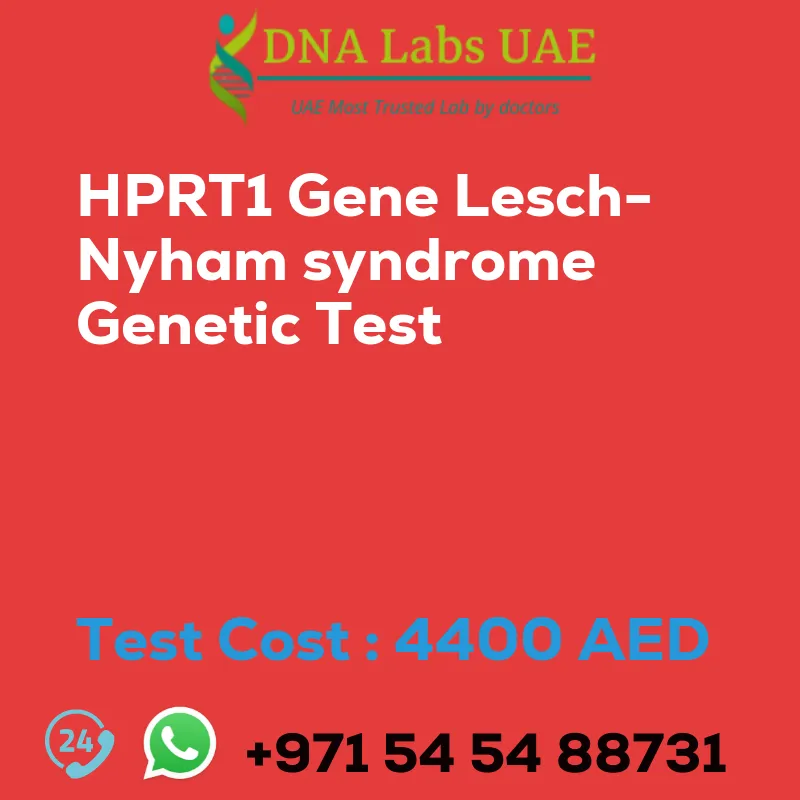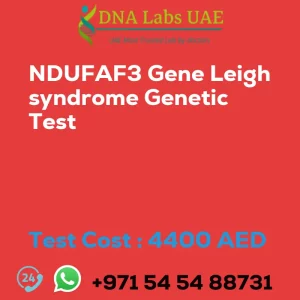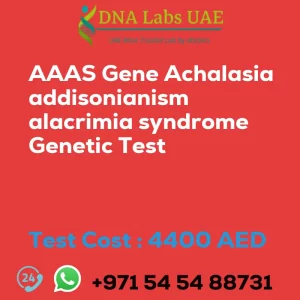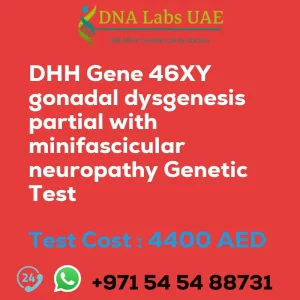HPRT1 Gene Lesch-Nyham Syndrome Genetic Test
Components
Price: 4400.0 AED
Sample Condition: Blood or Extracted DNA or One drop Blood on FTA Card
Report Delivery: 3 to 4 Weeks
Method: NGS Technology
Test Type: Neurological Disorders
Doctor: Neurologist
Test Department: Genetics
Pre Test Information
Clinical History of Patient who is going for HPRT1 Gene Lesch-Nyham Syndrome NGS Genetic DNA Test
A Genetic Counselling session to draw a pedigree chart of family members affected with HPRT1 Gene Lesch-Nyham Syndrome
Test Details
The HPRT1 gene is associated with Lesch-Nyhan Syndrome, a rare genetic disorder characterized by neurological and behavioral abnormalities. The HPRT1 gene provides instructions for producing an enzyme called hypoxanthine-guanine phosphoribosyltransferase (HPRT), which is involved in the recycling of purine nucleotides.
NGS (Next-Generation Sequencing) genetic testing is a method used to analyze multiple genes simultaneously. It involves sequencing the DNA of an individual to identify any variations or mutations in the genes of interest. In the case of Lesch-Nyhan Syndrome, NGS genetic testing can be used to identify mutations in the HPRT1 gene.
By identifying specific mutations in the HPRT1 gene, NGS genetic testing can help confirm a diagnosis of Lesch-Nyhan Syndrome in individuals who exhibit symptoms of the disorder. It can also be used for carrier testing in individuals who have a family history of the condition but do not show any symptoms themselves.
NGS genetic testing can be performed using a variety of methods, such as whole-exome sequencing (WES) or targeted gene panel sequencing. These methods allow for the analysis of multiple genes simultaneously, providing a comprehensive assessment of an individual’s genetic makeup.
It is important to note that NGS genetic testing is typically performed by healthcare professionals and genetic counselors who can interpret the results and provide appropriate guidance and counseling to individuals and families affected by Lesch-Nyhan Syndrome.
| Test Name | HPRT1 Gene Lesch-Nyham syndrome Genetic Test |
|---|---|
| Components | |
| Price | 4400.0 AED |
| Sample Condition | Blood or Extracted DNA or One drop Blood on FTA Card o |
| Report Delivery | 3 to 4 Weeks |
| Method | NGS Technology |
| Test type | Neurological Disorders |
| Doctor | Neurologist |
| Test Department: | Genetics |
| Pre Test Information | Clinical History of Patient who is going for HPRT1 Gene Lesch-Nyham syndrome NGS Genetic DNA Test A Genetic Counselling session to draw a pedigree chart of family members affected with HPRT1 Gene Lesch-Nyham syndrome |
| Test Details |
The HPRT1 gene is associated with Lesch-Nyhan syndrome, a rare genetic disorder characterized by neurological and behavioral abnormalities. The HPRT1 gene provides instructions for producing an enzyme called hypoxanthine-guanine phosphoribosyltransferase (HPRT), which is involved in the recycling of purine nucleotides. NGS (Next-Generation Sequencing) genetic testing is a method used to analyze multiple genes simultaneously. It involves sequencing the DNA of an individual to identify any variations or mutations in the genes of interest. In the case of Lesch-Nyhan syndrome, NGS genetic testing can be used to identify mutations in the HPRT1 gene. By identifying specific mutations in the HPRT1 gene, NGS genetic testing can help confirm a diagnosis of Lesch-Nyhan syndrome in individuals who exhibit symptoms of the disorder. It can also be used for carrier testing in individuals who have a family history of the condition but do not show any symptoms themselves. NGS genetic testing can be performed using a variety of methods, such as whole-exome sequencing (WES) or targeted gene panel sequencing. These methods allow for the analysis of multiple genes simultaneously, providing a comprehensive assessment of an individual’s genetic makeup. It is important to note that NGS genetic testing is typically performed by healthcare professionals and genetic counselors who can interpret the results and provide appropriate guidance and counseling to individuals and families affected by Lesch-Nyhan syndrome. |








